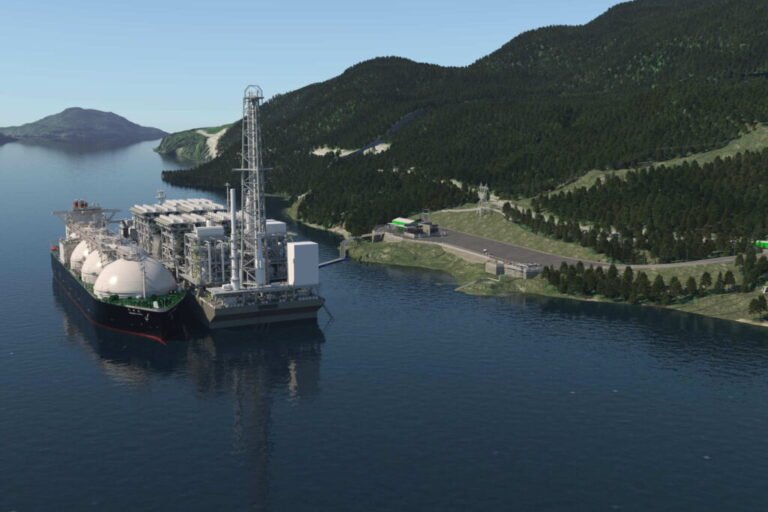Unlocking Canada’s Energy Potential: Cedar LNG Receives Government Support
Given the importance of unlocking the domestic energy industry, especially in the wake of escalating trade wars, rising prices, and energy security concerns, the Canadian government has handpicked Cedar LNG, a partnership between the Haisla Nation and Canadian energy infrastructure player Pembina Pipeline Corporation, to be on the receiving end of millions in support for a floating liquefied natural gas (LNG) (FLNG) facility with a nameplate capacity of 3.3 million tonnes per annum (mtpa) in the traditional territory of the Haisla Nation, on Canada’s West Coast.
According to the Canadian Association of Petroleum Producers (CAPP), Canada’s economy is at a crossroads with the energy industry standing ready to play “a foundational role” in driving new investments, creating high-paying jobs, and providing a stable supply of affordable energy. Despite nearly a decade of policy that has stifled growth, the industry is poised to make a significant impact.
Lisa Baiton, CAPP President & CEO, emphasized the need for urgent action to build a tariff-proof economy that provides Canadian businesses with direct access to global markets. The focus should be on expanding infrastructure, including pipelines, transportation corridors, and LNG export facilities, to support economic growth and energy security.
With the world becoming more unpredictable, CAPP stresses the importance of sending a clear signal to investors that Canada is open for business in the resource sector. The association’s Energy Platform outlines seven steps for the government to unleash Canada’s energy advantage and drive economic growth.
Canada Backs Cedar LNG with Millions
The government of Canada announced its support for Cedar LNG, an initiative described as the largest Indigenous majority-owned infrastructure project in the country. The project aims to deliver low-carbon, cost-competitive Canadian LNG to overseas markets, creating jobs and economic growth while upholding environmental responsibility.
Through a contribution agreement under the Strategic Innovation Fund, the government is providing up to CAD 200 million toward the CAD 5.963 billion project. This investment is expected to create jobs, drive economic growth, and support Indigenous communities while aligning with Canada’s climate goals.
Cedar LNG is a four-year project to construct an FLNG processing facility and marine export terminal in Kitimat, British Columbia. The facility will produce ultra low-carbon LNG powered by clean hydroelectricity, contributing to global energy security and environmental sustainability.
Canada’s Roadmap to Coming to Grips with U.S. Tariff Wave
Prime Minister Mark Carney outlined measures to develop a national trade and economic corridor to drive investment, create jobs, and build economic growth. These initiatives include creating a First Mile Fund, streamlining approvals for infrastructure projects, and investing in transportation networks and Indigenous-owned facilities.
By breaking down barriers to interprovincial trade and labor mobility, Canada aims to create a more open and interconnected economy, reducing costs for businesses and consumers. Prime Minister Carney committed to eliminating federal barriers to interprovincial trade by 2025, fostering a stronger and fairer economy.
With decisive leadership and strategic reforms, Canada is poised to unlock its energy potential, support Indigenous communities, and strengthen its position as a global energy leader. By embracing innovation and sustainability, the country can navigate challenges and seize opportunities for economic growth and prosperity.

